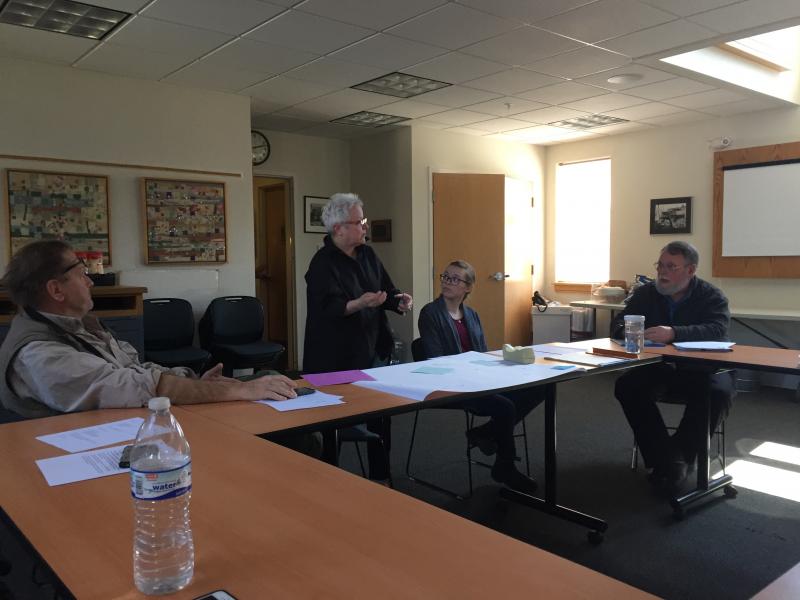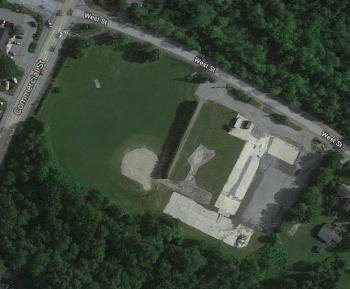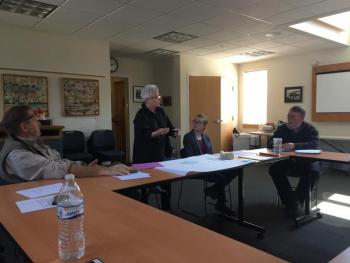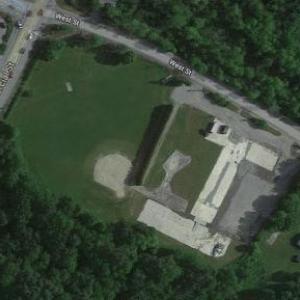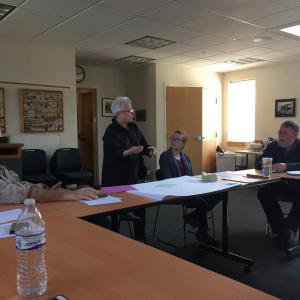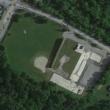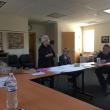Rockport to seek public input for future of former elementary school site
ROCKPORT — The informal group that has been meeting to tap ideas for the future of the former Rockport Elementary School site on West Street in Rockport met April 17 at the town office to plan a public forum which would invite Rockport residents and members of the public to offer thoughts on the potential development of the now vacant 7-acre lot on the corner of Routes 1 and 90. The group made tentative plans to host the event during the last week of May at the Rockport Opera House.
The 7-acre property is owned by the Town of Rockport. Since the demolition of the school in 2013, the site now consists of some concrete slabs but is primarily grass and green space, which has served, in part, as a baseball field throughout the years.
Members of the group said during the workshop that they hoped to provide citizens with aerial or property maps of the site, as well as to-scale diagrams of buildings, parking lots and cars with which to imagine future uses for the site.
Members of the public would be randomly broken into groups and asked to work together to put forth a vision for the site which would then be shared and explained to others in attendance.
Committee members present at the April 17 meeting, held at the Rockport Town Office and not streamed live, included Debra Hall and Doug Cole, of the Select Board; Town Manager Rick Bates; Town Planner Bill Najpaeur; Administrative Assistant for Assessing, Codes and Planning Hannah Sisk; as well as Planning Board member Clark Dolan.
“I think this can be a fun process – keep it open and celebrate people’s ideas,” said Najpaeur, of the upcoming forum.
The committee’s four “principles of development” will be highlighted prior to the workshop activity involving the maps and paper cut-outs representing acreage, building sizes, etc.
The principles outline a development project which contributes to Rockport’s tax base and is aesthetically pleasing while maintaining some of the lot’s undeveloped or “green” space.
At the meeting, members stressed the importance that the site would be developed for mixed-use purposes, most likely a combination of commercial space and residential space, such as condominiums.
The mixed-use premise would be stressed throughout the mapping exercise – an argument that the space should simply be preserved or be turned into a park would therefore not take into account the group’s tenet that the project contribute to the town’s tax base.
The property cannot be sold to developers without a vote by the town.
Cole asked Najpaeur at what point prospective developers would be involved in the project.
“At some point we will sit down with the public input, scope-out tentative costs, a time frame with the Capital Campaign for the town, and see where we could possibly get grants for the project,” said Najpaeur.
Hall suggested offering an explanation to participants in the forum of what uses for the site would benefit the tax base more than others. Committee members reiterated the fact that an upcoming public forum is a “starting point” for the project, and that this is merely a brainstorming period where ideas are being sought.
Najpaeur and Sisk said that the public meeting may also allow residents to fill out confidential comment cards or use a marker to identify where in town they live on a street map of Rockport.
The meeting closed with Hall and Cole asking Bates to allocate time at the April 29 Select Board meeting to present initial ideas to the other board members and ask their approval to move forward with the public workshop. It will ultimately be the Select Board who decide on behalf of the town which use of the property is most beneficial to its citizens.
Reach Louis Bettcher at news@penbaypilot.com
Event Date
Address
United States


